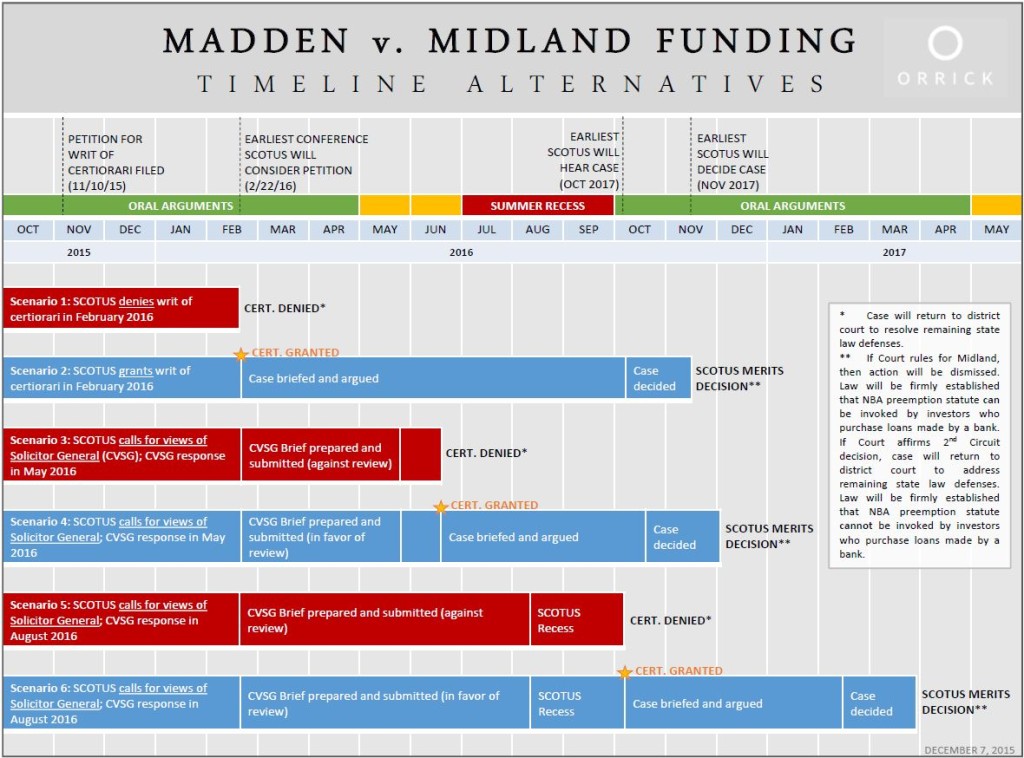On January 12, 2016, the Federal Housing Finance Agency (“FHFA”) issued a final rule establishing new requirements for membership in the Federal Home Loan Banks (“FHLBanks”). The FHLBanks are 11 U.S. government-sponsored banks that provide liquidity to their members to support housing finance and community investment. Membership is governed by the Federal Home Loan Bank Act (the “Act”), which states that insurance companies, among others, are eligible for membership. 12 U.S.C. § 1424(a)(1). The new rule, issued under that Act, establishes new requirements for becoming a member and maintaining membership of an FHLBank. Most notably, the final rule excludes captive insurance companies from membership.
In its 2014 proposed rule, FHFA first proposed excluding captive insurance companies from the scope of the definition of “insurance company” in the Act. Captive insurance companies are insurance companies established by a parent specifically to cover risks to which the parent is exposed; they do not insure non-affiliated third parties. Despite receiving 400 comments on this aspect of the rule, almost all of which expressed opposition to the proposal, FHFA’s final rules retains the proposal essentially as it was proposed.
Under the rule, FHLBanks may not accept any captive insurance companies as new members. For captive insurance companies that became members since the rule was proposed in 2014, membership must be terminated within one year, and no additional advances may be made. Captive insurance companies that were members of a FHLBank prior to the issuance of the proposed rule may remain members of their current FHLBanks for five years, but the amount of advances they can receive are capped, and the FHLBanks may not make new advances or renew existing advances with a maturity date beyond the five-year period.
The rule’s exclusion of captive insurance companies is vulnerable to challenge in court. Chiefly, it is unclear that FHFA has authority to exclude captive insurance companies from the purview of the Act. Congress directed that “any” insurance company shall be eligible for membership, potentially ousting FHFA’s discretion to pick and choose among insurance companies, especially where the definition of “insurance company” has traditionally been left to the States. In the same vein, it is unclear that FHFA may add additional statutory criteria (here, that an insurance company must primarily underwrite insurance for nonaffiliated persons or entities) not included by Congress. In addition, FHFA’s evaluation of its purported reason for excluding captive insurance companies—that such companies may be passing advances through to their parents, who are not eligible for FHLBank membership—is not thoroughly analyzed. It appears that rather than investigating whether captive insurance companies are actually being used as conduits to ineligible entities, FHFA relies primarily on industry publications encouraging companies to set up captives in order to do so. Moreover, it is unclear that FHFA’s proffered solution would solve any purported problem given that other entities that remain eligible under FHFA’s new rule can also pass through advances to their ineligible parent companies.
Under the 2014 proposal, FHFA also proposed imposing ongoing minimum investment requirements on FHLBank members in order to maintain membership. Specifically, FHFA proposed that institutions would have had to maintain a certain percentage of residential mortgage assets. The threshold for small banks and credit unions with assets less than $1 billion was at least 1%. In its final rule, FHFA removed these requirements from the final regulations, concluding that the burdens of imposing such standards would outweigh the benefits.
The new regulation will go into effect 30 days after publication in the Federal Register. The rule has been strongly opposed by industry participants, who view it as a detriment to the liquidity of the residential housing market, and is expected to garner further discussion and likely a court challenge. Press Release. Final Rule.
Please feel free to contact any of the authors of this Client Alert or other Orrick attorneys with whom you work to discuss any questions you may have with regard to the foregoing.




